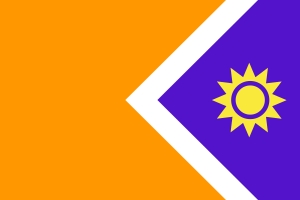Difference between revisions of "Language/Marathi/Vocabulary/Multilingualism"
m (Quick edit) |
m (Quick edit) |
||
| Line 72: | Line 72: | ||
[[Category:0-to-A1-Course]] | [[Category:0-to-A1-Course]] | ||
[[Category:Marathi-0-to-A1-Course]] | [[Category:Marathi-0-to-A1-Course]] | ||
==Related Lessons== | |||
* [[Language/Marathi/Vocabulary/Science-and-technology|Science and technology]] | |||
* [[Language/Marathi/Vocabulary/How-to-Say-Hello-and-Greetings|How to Say Hello and Greetings]] | |||
* [[Language/Marathi/Vocabulary/How-to-say-Good-Bye?|How to say Good Bye?]] | |||
* [[Language/Marathi/Vocabulary/Countries-(dosh-दोश)|Countries (dosh दोश)]] | |||
* [[Language/Marathi/Vocabulary/Languages-(bhasha-भाषा)|Languages (bhasha भाषा)]] | |||
* [[Language/Marathi/Vocabulary/Days-(var-वार)|Days (var वार)]] | |||
* [[Language/Marathi/Vocabulary/Food-and-drinks|Food and drinks]] | |||
* [[Language/Marathi/Vocabulary/Animals|Animals]] | |||
* [[Language/Marathi/Vocabulary/Drinks|Drinks]] | |||
{{Marathi-Page-Bottom}} | {{Marathi-Page-Bottom}} | ||
Revision as of 21:45, 14 March 2023
In this lesson, we will explore the linguistic diversity of Maharashtra and the benefits of being multilingual. As a Marathi language teacher with 20 years of experience, I can tell you that learning multiple languages can open many doors and bring numerous advantages. So, let's dive in and discover why!
Maharashtra's Linguistic Diversity
Maharashtra is a state located in western India that boasts a rich cultural heritage and a diverse linguistic landscape. According to the 2011 Census of India, there are over 41 distinct languages spoken in Maharashtra. Marathi is the state's official language, but other prominent languages include Hindi, Gujarati, Urdu, Telugu, Kannada, and English.
Besides these languages, the state is home to many indigenous and tribal communities that speak their own unique dialects and languages. For example, the Warli community, known for its ancient art forms, speaks Warli, a distinct language with its own set of grammatical rules and vocabulary.
This linguistic diversity is a testament to the state's multicultural society, and it creates an environment ripe for intercultural exchange and language learning opportunities.
The Benefits of Multilingualism
Now that we've seen how Maharashtra's linguistic diversity is an asset let's take a closer look at why being multilingual is a valuable skill.
1. Enhanced Cognitive Abilities:
Learning more than one language can have a positive impact on your cognitive abilities, such as improving memory retention, flexing problem-solving muscles, and enhancing creativity. It also enhances empathy and cultural awareness, enabling individuals to better relate to people from different cultures and backgrounds.
2. Career Opportunities:
Knowing multiple languages can open up a wider range of job opportunities locally and globally. In an increasingly interconnected world, being multilingual is an asset that can give you a competitive edge in any industry.
3. Travel and Tourism:
Travelling to different countries and experiencing different cultures becomes more accessible when you know multiple languages. Also, if you have knowledge of the local language, it can make your travel more enjoyable and enriching.
4. Personal Growth:
Learning a new language can be a challenging and rewarding experience. It provides an opportunity for personal growth and self-discovery, expanding your horizons beyond your comfort zone. In the process, you develop greater self-confidence and self-awareness.
Marathi Vocabulary for Multilingualism
Learning Marathi vocabulary can be a stepping stone to mastering more than one language. Here are some essential Marathi phrases that can help you start your multilingual journey:
| Marathi | Translation |
|---|---|
| ही कोणती भाषा आहे? (hī kōna-tī bhāṣā āhē?) | What language is this? |
| आपण तुमची काय बोलतो? (āpaṇa tumachī kāya bōlatō?) | What do you speak? |
| माझ्या सोबत अंग्रेजी बोलण्यासाठी काही तज्ज्ञता नाही. (mājhyā sōbata angrejī bōlaṇyāsāṭhī kāhī tajjy-tā nāhī.) | I am not fluent in speaking English. |
| मला हिंदी बोलण्याची खूप आवड आहे. (malā hindī bōlaṇyācī khūp āvaḍa āhē.) | I like to speak Hindi. |
| माझ्या जीवनातील सर्वात मोठी इच्छा एक समज असलेल्या व्यक्ती आणि त्याची भाषा समजून घ्यावी. (mājhyā jīvanātīla sarvāta mōṭhī icchā ēka samaja asalēlyā vyaktī āṇi tyācī bhāṣā samajūna ghyāvī.) | My biggest desire in life is to understand a person who belongs to a culture different from mine and speak his/her language. |
By learning Marathi and then other languages, you'll also gain a deeper appreciation for the nuances of the Marathi language and better understand the cultural significance behind it.
In conclusion, being multilingual comes with a range of advantages like enhancing cognitive abilities, creating new career opportunities, making travel and tourism more accessible, and fostering personal growth. Moreover, learning Marathi vocabulary can help you get started with exploring different languages while also gaining a deeper appreciation of the Marathi language and rich culture.
I hope this lesson has been useful in highlighting the benefits of being multilingual and the linguistic diversity of Maharashtra. In the next lesson, we will continue our exploration of Marathi vocabulary with a focus on numbers.
